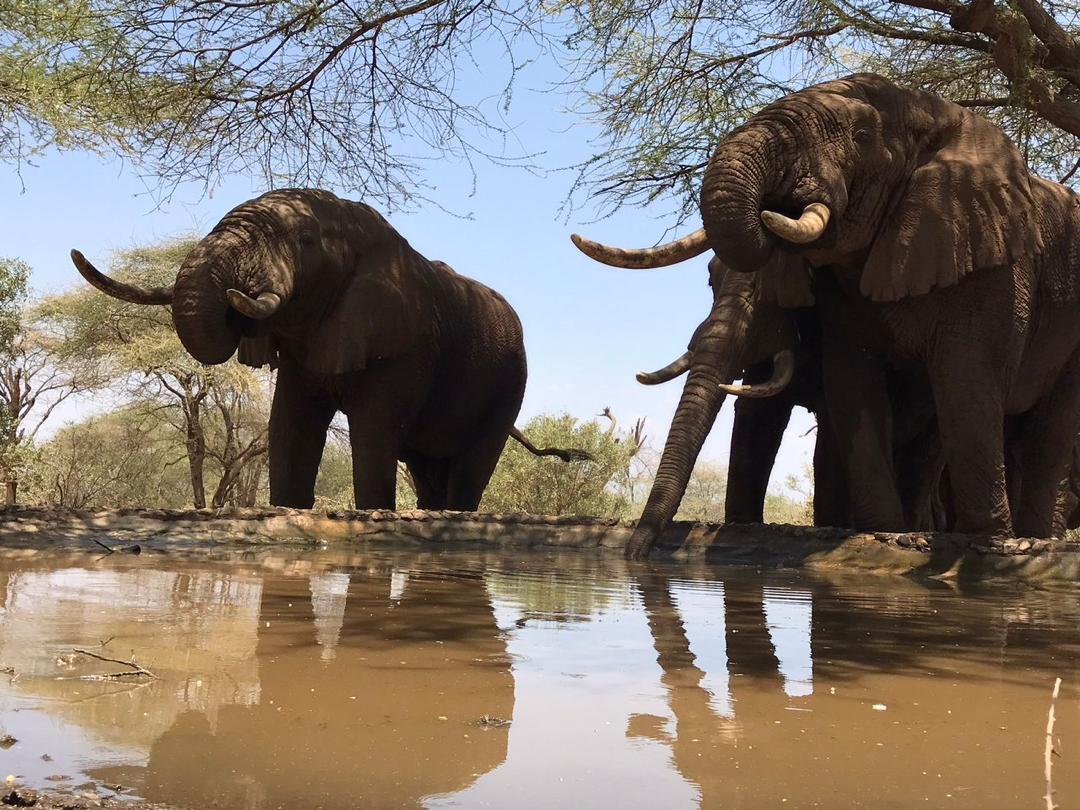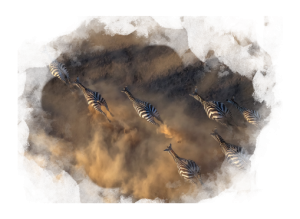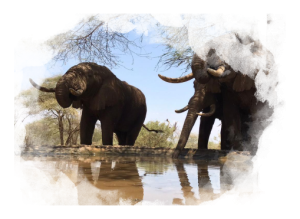The mere thought of Africa instantly triggers one’s desire to teleport there. It is a captivating and invigorating destination, one that sparks a sense of wanderlust in the hearts of many. Like countless others, I have always felt drawn to Africa, and the allure of its diverse landscapes, vibrant cultures, and awe-inspiring wildlife continues to beckon me.
If you are considering your first African getaway, you may find yourself overwhelmed with the prospect of planning an itinerary. Where do you begin? What questions should you ask? Exploring Africa travel often leaves you with more questions than answers.
As someone who empathizes with this dilemma, I understand that African escapes require careful consideration. They can take various forms, accommodate a wide range of budgets, and offer a multitude of experiences. There is no one-size-fits-all itinerary for Africa because, like all forms of travel, it depends on personal preferences and interests. The region demands meticulous logistics and planning, but the rewards are immensely fulfilling once you embark on the journey.
Finding Your Direction
If you are contemplating a trip to Africa and find yourself in the exploratory or brainstorming phase, don’t hesitate to reach out. Many seasoned travelers, myself included, are more than happy to chat with you, without any obligation, and help you find your direction. The beauty of Africa lies in its diversity, and there is undoubtedly a perfect African adventure waiting for you.
Common Questions about Africa Travel
Now, let’s delve into some common questions about Africa travel, specifically regarding safaris and more. I will provide insights, inspiration, and answers to six common considerations.
- How long should you allocate for your African adventure?
The ideal duration for a safari in Africa varies depending on individual preferences and the specific destinations being visited. However, to maximize your experience and fully immerse yourself in the enchanting wilderness, a recommended duration would be around 10 to 14 days. This timeframe allows for ample time to explore multiple wildlife-rich regions, encounter diverse ecosystems, and witness various animal behaviors. It also allows for flexibility in scheduling game drives during different times of the day, increasing the chances of spotting elusive wildlife.
Additionally, a longer safari duration enables you to venture into remote areas, embark on guided walks, engage in cultural interactions with local communities, and truly connect with the natural beauty and raw wilderness of Africa. Ultimately, the longer you can spend on a safari, the more opportunities you have to delve into the captivating rhythm of the African bush and create unforgettable memories.
- When should you go?
The best time to visit Africa depends on the specific countries and regions you plan to explore, as the continent has diverse climates and seasons. Here are some general guidelines for popular African destinations:
- East Africa (Kenya, Tanzania, Uganda): The dry seasons from June to October and from December to February are typically considered the best times to visit. These months offer excellent wildlife viewing opportunities, comfortable temperatures, and minimal rainfall. The Great Migration in the Serengeti/Masai Mara usually takes place between July and October.
- Southern Africa (South Africa, Botswana, Zimbabwe, Namibia): The dry winter months (May to September) are popular for wildlife viewing, as animals gather around water sources. However, game reserves can be busier during this time. The wetter summer months (November to March) offer lush landscapes, newborn wildlife, and birding opportunities.
- North Africa (Egypt, Morocco): The cooler months from October to April are generally the most comfortable for exploring these regions, as summers can be extremely hot. However, each country has its own climate variations, so it’s advisable to research specific destinations within North Africa.
- Central Africa (Rwanda, Democratic Republic of Congo): These regions are known for gorilla trekking, and the dry seasons (June to September and December to February) are recommended for clearer hiking trails and easier wildlife sightings. However, trekking can still be done year-round with varying weather conditions.
It’s important to note that Africa is a vast and diverse continent, and climates can vary within countries and regions. It’s crucial to research the specific destinations you plan to visit and consider factors such as weather, wildlife patterns, and personal preferences when deciding on the best time to go. Consulting with local experts or tour operators can provide valuable insights and help you plan your trip accordingly.
- Should you visit multiple countries all in one go?
Africa is an immense continent, surpassing the size of China, India, the contiguous U.S., and most of Europe combined. Within this vastness, certain countries naturally complement each other, offering well-suited combinations. For instance, you may consider combining Kenya for an exhilarating safari experience with either Uganda or Rwanda for captivating gorilla trekking adventures. Another enticing option could be combining Kenya with Zanzibar or Mauritius, providing an ideal blend of bush exploration and relaxing beach escapes. Additionally, a fusion of Namibia’s captivating desert-scapes with the diverse wetland landscapes and wildlife of Botswana’s Okavango presents an alluring combination worth considering.
- How much should you budget for?
One of the most significant inquiries, albeit often uncomfortable, when embarking on a trip of a lifetime is determining the budget. It is crucial to understand that the cost encompasses more than just accommodations and varies across a wide range, even within the luxury category. Unlike traditional hotels, safari camps offer a comprehensive experience that goes beyond mere lodging.
When considering the budget for your African travel, it’s important to remember that quotes typically include accommodations, meals, beverages, sundowners, transfers, drivers/guides, internal logistics (flights), park/conservancy fees, and sometimes additional city experiences or contributions to community initiatives. It’s also essential to acknowledge the expenses associated with operating camps in remote areas. From drivers, guides, and cooks to camp managers, laundry attendants, guards, vehicle mechanics, and behind-the-scenes staff, various individuals are involved in running the camps successfully.
As a starting point, it is advisable to consider a mental budget of around $1000 per person per day. However, it’s important to note that costs can escalate to $2000 or more per person per day for ultra-luxury experiences, particularly during peak seasons. Rates fluctuate based on seasonality, and the differences can be significant.
For instance, if you are planning a trip to Kenya or Tanzania during the Great Migration, a budget of approximately $1000 – $1250 per person per night can secure you a delightful 4-star property. Opting for 5-star luxury options would require a budget ranging from $1750 to $2500 or more per person per night. It is crucial to understand that the per person per night budget should be considered within the context of your entire trip. For example, a 10-day journey in Kenya might entail spending two nights in Nairobi (less expensive) and eight nights on safari split between two camps (more expensive). While each individual night may not cost $1000, the budget also accounts for internal flights, drivers, and other logistical aspects.
It’s worth mentioning that while gratuities may be included in some camp quotes, often they are not. Budgeting for tipping is essential as it is customary and serves as an important source of income for staff in most camps. Typically, tipping involves gratuities for your personal driver and guide (one or two individuals) and a sum to be distributed among the camp staff by the camp manager. Tips are usually given in cash and can be provided in local currency or USD.
- What else should I know?
When planning a trip to Africa, there are several important aspects to consider. Here are some key points to keep in mind:
- Visa requirements: Check the visa requirements for the specific countries you plan to visit. Some countries offer visa-on-arrival options, while others require obtaining a visa in advance. Make sure to check the visa validity period and any necessary supporting documents.
- Health and vaccinations: Consult with a travel health specialist or visit a travel clinic to get up-to-date information on recommended vaccinations and health precautions for the regions you plan to visit. Certain countries may require proof of specific vaccinations, such as yellow fever.
- Travel insurance: It is highly recommended to have comprehensive travel insurance that covers medical expenses, trip cancellation or interruption, baggage loss or theft, and emergency evacuation. Ensure that your insurance covers the activities you plan to engage in, such as wildlife safaris or adventure sports.
- Safety and security: Research the safety situation of your intended destinations and stay informed about any travel advisories or warnings issued by your home country’s government. Familiarize yourself with local customs, laws, and regulations to ensure a respectful and safe experience.
- Transportation and internal logistics: Understand the transportation options available within the countries you’ll be visiting. Consider whether you’ll need to book internal flights, arrange transfers, or hire a private driver/guide. Research the reliability and safety records of transportation providers you plan to use.
- Currency and payments: Familiarize yourself with the local currency and exchange rates. It’s advisable to carry a mix of cash and internationally accepted debit/credit cards. Inform your bank about your travel plans to avoid any issues with card usage abroad.
- Local customs and etiquette: Show respect for local customs, traditions, and etiquette. Learn a few basic phrases in the local language to enhance communication and connect with the local people. Research and follow any specific cultural norms or dress codes in the regions you’ll be visiting.
- Wildlife encounters: If you’re planning wildlife experiences, such as safaris or gorilla trekking, follow the instructions and guidelines provided by your guides. Respect the animals’ space and behavior, and never attempt to approach or touch them without professional guidance.
- Packing essentials: Pack appropriate clothing, including lightweight and breathable fabrics for warm climates, and layers for cooler evenings. Don’t forget essentials like sunscreen, insect repellent, a good pair of binoculars, and a universal power adapter.
- Respect for the environment: Africa is home to incredible ecosystems and wildlife. Practice responsible tourism by following sustainable practices, such as minimizing waste, conserving water, and respecting wildlife and their habitats. Leave only footprints and take memories and photographs with you.
Planning a journey to Africa can be a thrilling adventure in itself. Whether you’re drawn to the wild landscapes, eager to witness iconic wildlife, or excited to immerse yourself in the rich cultural tapestry of the continent, Africa promises a transformative experience like no other.
Embrace the vastness, diversity, and wonder of Africa with open arms, and allow yourself to be captivated by its beauty and charm. Let the journey begin, and may your African adventure be an unforgettable chapter in the book of your life. If you ever find yourself in need of guidance or inspiration, remember that there are countless individuals, including myself, willing to assist you in crafting the perfect African escape. Happy travels!




